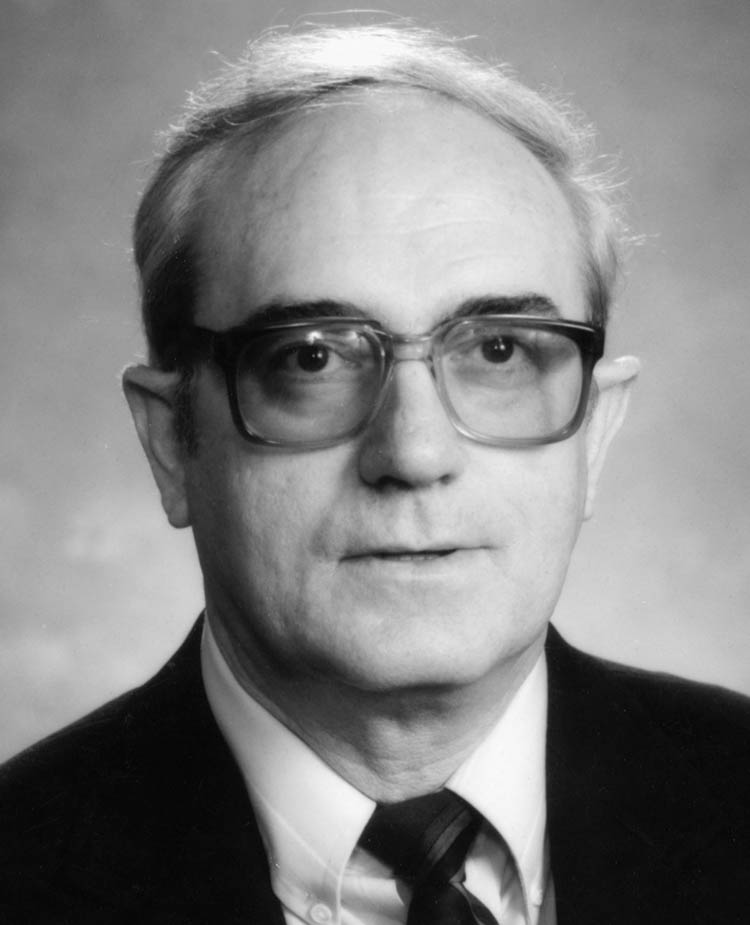
By Michael Justus , Student Association president 1973-74
In a world that lives for a standing ovation, humble servants are a rare breed.
They do their finest work in the shadows, making sure others remain in the spotlight. Their concern is for the greater good, deflecting appreciation that rightfully belongs to them.
Dr. Jerome Barnes belongs in that elite company. Had he been an artist, his paintings would have no signature. Had he been a writer, his publications would have no byline.
He was a quiet man, yet his life spoke volumes about his concern for the well-being of others.
He delighted in helping children experience the thrill of Independence Day. As if by magic, he could transform 50 cents in a child’s hand into $5 of bottle rockets from his fireworks stand.
He understood emotion hidden in photographs set to music. During the final chapel assembly each spring semester, his audiovisual genius was on display. It took days for him to sift and sort hundreds of slides, ensuring that as many faces as possible were included in his visual montage. For 20 minutes we watched ourselves relive the year and left chapel humming “friends are friends forever.”
Dr. Barnes was a dedicated teacher in the classroom. He expected from us no less than what he demanded from himself, and we learned from him the value of an exemplary work ethic.
He was convinced that we needed an education beyond our textbooks, and in Student Association meetings, he gave us permission to ask questions and to debate decisions. He was quick to hoist us up onto his shoulders for a better view of all our options before we made a hasty decision. But once our choice was made, he did not shield us from the consequences.
When we mismanaged our responsibilities, he walked us through the moment. He was the one who nudged me to apologize in person to the faculty for the language and behavior of a musical group whose performance fell short of Harding’s expectations. The apology was necessary, but more importantly, he taught me that when outcomes are disappointing, true leaders accept blame, and when projects are successful, servants are quick to share the credit.
In 1984, the year before our family returned to Searcy, a book arrived in our mailbox. I remember little of what was written on the pages, but I will never forget the title: Tough Times Never Last, But Tough People Do . The return address on the package belonged to Jerome Barnes. It was his subtle vote of confidence, an unsolicited affirmation, which came at a moment when I needed it most.
It is impossible to think of Dr. Barnes without his wife, Barbara. They have been known affectionately as Pa and Ma Barnes, and together they have demonstrated the heart and hands of hospitality. Our children will tell you the Barnes’ house was their favorite stop after school for soft drinks in miniature bottles, and we remain grateful for the year they shared their Christmas Eve dinner with us when we were displaced in temporary housing. Their front door has always been open, and the sofa in front of Ma Barnes’ fireplace remains a welcome seat for conversation.
Jerome Barnes was convinced that the most effective teachers are perpetual students themselves. My guess is that in his personal Bible study, he and the apostle Paul talked often about how best to “do nothing out of selfish ambition or vain conceit, but in humility consider others better than yourselves.”
Pa Barnes was a mentor, counselor and trusted advisor. Surely, he will hear the words that best describe the lifeblood of his character: “Well done, my good and faithful servant.”
Jerome Medwick Barnes (’56), 86, of Searcy died Oct. 3, 2020. He received a master’s in education from Harding and a doctorate in education from University of North Texas. He was principal at Truman, Arkansas. He worked 48 years at Harding, first serving as elementary principal at Harding Academy of Memphis, Tennessee, and then as vice president of student services, professor of education, and director of the educational media center at the University. He was sponsor of the Student Association and the student activities committee. After retirement from the University, he worked at Health Talents International for 15 years. He was a member of College Church of Christ. He is survived by his wife of 62 years, Barbara Green (’64); three children, Roy (’82), Jerome (’89), and Jennifer Moffett (’95); sister, Clara Haskill; seven grandchildren; and four great-grandchildren.